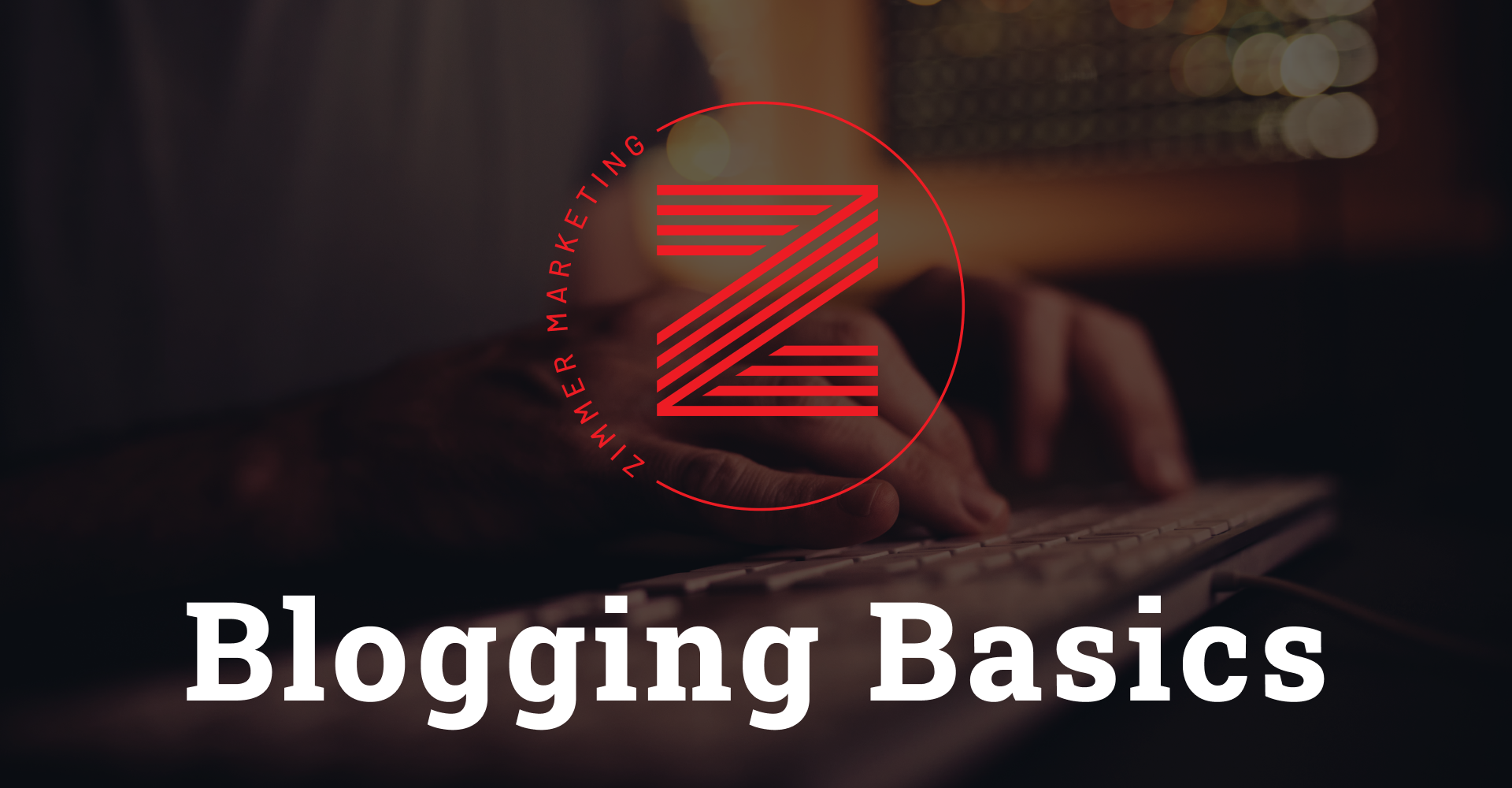
We've made it! This is the final installment in our series on the web development process here at Zimmer Marketing. As a refresher, we've covered our reasons for using WordPress, and the three phases of a web project, including content creation, design, and development. At the end of last week's blog, we mentioned that launch is just the beginning of your new website. This week we'll take a look at where your website can go with the help of blogging!
If You're Not Blogging, You're Not on the Internet
One of the most effective ways websites gain traffic is through organic searches. Search engines index the text content on your website and determine its relevance to internet users. That's where your blog comes in. An active blog ensures that your website's content constantly expands, making it more likely that search engines offer your website to searchers using keywords your business website targets. Realistically speaking, if your website is not building out its content, your chances of being found in organic searches are slim to none. That's why we say if you're not blogging, you're not on the internet.
Imagine two business websites for local plumbers. Each website has basic pages, home, about, services, reviews, and locations. The first website hasn't been updated since the day it was built and only has about 1,500 words on the whole website. The second website has all this but maintains a blog on plumbing relevant topics. Which website do you you think brings in more business? Of course, it's the website with a blog! Even a small blog can easily double the total amount of content on a website in the first couple of months!
Organic Search v. Paid Search
The common alternative to organic search that businesses will often use is paid search. And while you can gain traffic through search ads, it is expensive and doesn't build up permanent domain authority (how high search engines rate your website). You see, without competing for organic search, once you stop paying for ads, your traffic will immediately evaporate. Our advice is to never build your entire online strategy around paid search. It is best used to supplement a robust organic strategy powered by blogging.
WordPress is Designed for Blogging
As we've discussed before, WordPress is our preferred web platform at Zimmer Marketing. And one of the primary reasons for this is that it is designed for blogging. The platform makes it easy to maintain a blog without fuss and publishes through RSS.
What Is An RSS Feed?
An RSS feed takes a new blog post and syndicates it by notifying search engines that fresh content is ready to index on your website. WordPress support describes it this way: "A feed (often called RSS) is a stream of posts or comments that is updated when new content is published." While blogs utilize RSS feeds, many other types of content also function this way, including podcasts.
Blog With Zimmer Marketing
Start Blogging With Zimmer Marketing Today!
